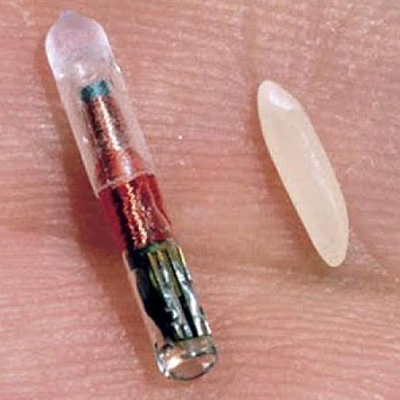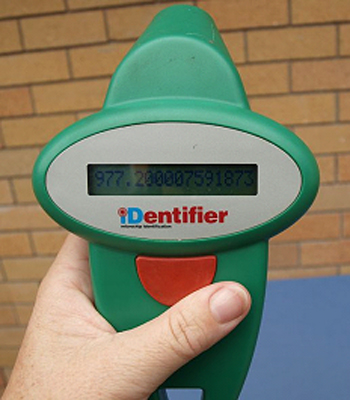9 Things You Need to Know About Microchipping

According to numbers from the ASPCA, approximately 36 percent of the 3.9 million dogs that enter animal care shelters in the United States enter as strays that were separated from their owners. That’s a lot of lost dogs!
Fortunately, technology exists to help you find your pet in the event that he ever becomes lost. Microchipping your dog, along with outfitting him with a collar and up-to-date ID tags, will go a very long way toward helping you reunite with your beloved pet.
Because microchipping is new to some people, and the technology hasn’t caught on everywhere, many people have questions when it comes to this topic. Here are some answers to the questions dog owners might have about microchipping.
1. What is a microchip?
A microchip is a small electronic chip enclosed in a glass cylinder — so tiny that it’s about the size of a grain of rice. The microchip is inserted under your dog’s skin via a hypodermic needle and is activated by a scanner that is passed over the microchip. Once it’s activated, the microchip emits a radio frequency and displays information that can help recover your dog in the event that he becomes lost, including a registration number and the phone number for the registry of the particular brand of microchip.
2. Will a microchip hurt my dog or get lost in his body?

3. What kind of information does a microchip hold?
Microchips only contain identification numbers that are generated by the registry of the particular brand of chip.
4. Can a microchip replace a collar and ID tags?
No! Think of microchipping your dog as added protection. A collar and up-to-date ID tags are still a great bet for recovering your dog if your average person finds him wandering around, especially if that person doesn’t have access to or doesn’t know about microchips. Plus, like most technology, microchips aren’t foolproof. According to the HSUS, universal scanners can detect the presence of a microchip, but might not be able to read the information on it. And if an animal shelter volunteer or vet clinic staff doesn’t use the scanner properly, it might not detect the microchip.
5. Is there a central database that registers microchip information?

To help users find out microchip information more easily, the American Animal Hospital Association launched the Universal Pet Microchip Lookup Tool in 2009. entering the microchip ID into the search bar, users can find out which manufacturer is associated with the ID, and can then contact the manufacturer to find out owner information. According to the American Veterinary Medical Association, the likelihood that an pet can’t be identified from his microchip is very low.
6. What happens to the information on my dog’s microchip if I move?
If you change addresses, you must contact the company that registers your dog’s microchip and update your information.
7. Where can I get my dog microchipped?
Most veterinary clinics provide microchipping services. Some pet-supply stores and animal shelters also provide microchipping events.
8. Are there any health concerns associated with microchips?
Some news reports have linked microchips with cancer; however, the AVMA states that the chance of a pet developing cancer because of a microchip is “very, very low.”
9. Will a microchip really help to recover my dog if he gets lost?
Yes! According to the AVMA, a study of more than 7,700 stray animals at shelters showed that dogs with microchips were returned to their owners over 52 percent of the time; dogs without microchips were only returned to their owners 21 percent of the time. Of the dogs that weren’t returned, most of the time it was because the owner information in the registry database was incorrect, or the chip was never registered. So if your dog is microchipped, be sure to register his information, and keep it current!
« How to Trim a Dog’s Nails Next Post
Do Certain Dog Breeds Suffer from Cancer More Than Others? »





